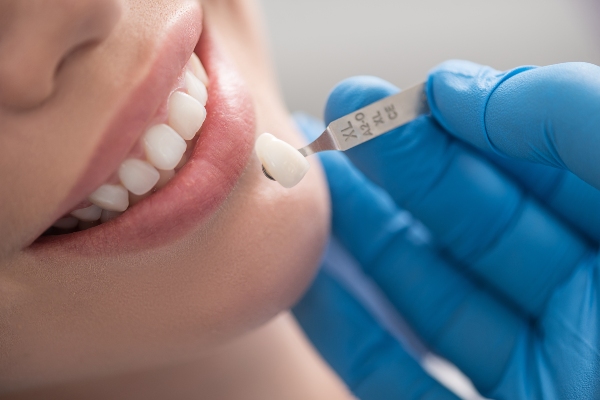 Dental crowns stand out among dental restorations as versatile and effective solutions for various oral health issues. A dental crown, or "cap," is designed to cover and encase a damaged or weakened tooth, restoring its strength, function, and appearance.
Dental crowns stand out among dental restorations as versatile and effective solutions for various oral health issues. A dental crown, or "cap," is designed to cover and encase a damaged or weakened tooth, restoring its strength, function, and appearance.
The 5 most popular types of dental crowns
Over the years, advancements in dental technology have led to the development of various types of dental crowns, each with its unique characteristics and applications. In this guide, we discuss dental crowns, highlighting each of the most common types.
Metal alloy crowns
Metal alloy crowns provide exceptional durability and strength. They are resistant to wear and tear, making them excellent for posterior (back) teeth that endure significant pressure from eating. Metal crowns are also known for their longevity, lasting for decades without showing signs of wear in many cases. However, due to their metal color, they are less ideal for front teeth that are more visible.
Porcelain-fused-to-metal (PFM) crowns
PFM crowns strike a balance between strength and aesthetics. These crowns consist of a metal substructure covered with a porcelain outer layer. The metal provides durability, while the porcelain outer layer offers a natural tooth-like appearance, providing the color and translucency of natural teeth. PFM crowns are versatile and are often used for front and back teeth.
All-porcelain crowns
All-ceramic (all-porcelain) crowns are known for their exceptional aesthetic qualities. They are identical to the shade of natural teeth and can be color matched to blend in. All-ceramic crowns work best for front teeth, where appearance is the most important factor. Since front teeth do not need the same level of strength, this material holds up well over time. However, all-ceramic crowns are less ideal for molars and premolars.
Gold alloy crowns
These crowns are comprised of various metals, including gold, copper, and other alloys. While they may not match the natural color of teeth, they offer exceptional strength and resistance to wear. Gold alloy crowns are often chosen for posterior teeth that require more strength and are less visible. Additionally, the compatibility of gold with gum tissues makes them less likely to cause irritation or allergic reactions.
Zirconia crowns
Zirconia crowns are popular for their remarkable strength, durability, and aesthetic qualities. Zirconia is a type of ceramic material known for its biocompatibility, making it suitable for dental restorations. Zirconia crowns have been used in anterior and posterior teeth due to their combination of strength and aesthetics. Whether used for single crowns or bridges, they offer a reliable and aesthetically pleasing option for dental restorations.
We offer a range of dental crown material types
Are you considering a dental crown (or multiple crowns)? If so, our dental office can help. We offer various dental crown types and can help you choose the appropriate solution for reaching your dental goals and needs. Please feel free to contact us today, as we can answer any of your questions and address any of your concerns. We are here to help!
Request an appointment or call Oro Valley Family Dentistry at 520-833-5261 for an appointment in our Tucson office.
Related Posts
When it comes to enhancing the smile or addressing dental issues, dental crowns and veneers are popular options that offer great results. Both serve different purposes and have unique advantages. It helps to understand the distinctions between the two so you can decide which option is best suited for your specific needs.Dental crowns and veneers…
Dental crowns can restore your smile. These restorations can bring back your normal dental function at the same time. Understanding the reasons to get caps to improve your looks can motivate you to set an appointment. Here are the cosmetic reasons for getting dental crowns.Severe decay deteriorates the enamel. This condition weakens the dental structure.…
Dental crowns are a reliable and effective tool for restoring damaged teeth. While most people think of dental crowns in relation to root canals, crowns can also restore beauty and function to cracked teeth. If you have fractured a tooth, a dental crown may be the solution you have been looking for.A dental crown sits…


